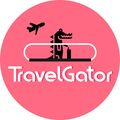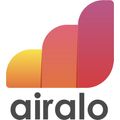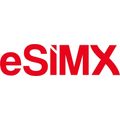TravelGator eSIMs has a High speed up to 5G which you can easily link and roam immediately. No throttle speed or daily limit and its reloadable with other countries. On top of it all, our TravelGator eSIM is high customisable where you can pick and choose the amount of data and duration for your travels!

TravelGator eSIMs has a High speed up to 5G which you can easily link and roam immediately. No throttle speed or daily limit and its reloadable with other countries. On top of it all, our TravelGator eSIM is high customisable where you can pick and choose the amount of data and duration for your travels!
TravelGator eSIM eSIM Data Plans for South Korea
Unfiltered Customer Reviews
Share your own experience and help fellow travelers!
As soon as I land in a new country, it’s just a few simple steps to activate the eSIM—and I’m instantly connected!
The connection is way more stable than my original telco’s roaming, and best of all—no more swapping SIM cards or re-adding eSIMs every time I travel.
Definitely a game-changer for frequent travellers like me! 😊🌍
Frequently Asked Questions
Does TravelGator eSIM offer unlimited data eSIM for South Korea?
TravelGator eSIM does not provide an unlimited data eSIM for South Korea. The available South Korea eSIM plans from TravelGator are fixed‑data packages that offer 12GB of data. Example plans include a 1‑day 12GB option priced at about 15.06 USD and a 10‑day 12GB option priced near 18.86 USD. Travelers who need a larger data allowance may find these fixed‑data plans more cost‑effective unless they routinely consume more than 12GB.
Does TravelGator eSIM offer South Korea eSIM with phone number and SMS?
TravelGator eSIM does not provide a South Korea eSIM that includes a phone number or SMS capability. Only data‑only plans are available for the country, and travelers can use VoIP applications such as WhatsApp, Telegram or iMessage over that data connection for voice and text communication.
How many data plans does TravelGator eSIM offer for South Korea?
TravelGator eSIM provides 42 single‑country data plans for South Korea, with no multi‑country options available. The plans range in price from about $1.39 to $19.34 and include data caps between 1 GB and 12 GB, with validity periods from 1 to 15 days. Some plans allow tethering.
Summarized by Gen AI. Last updated:




